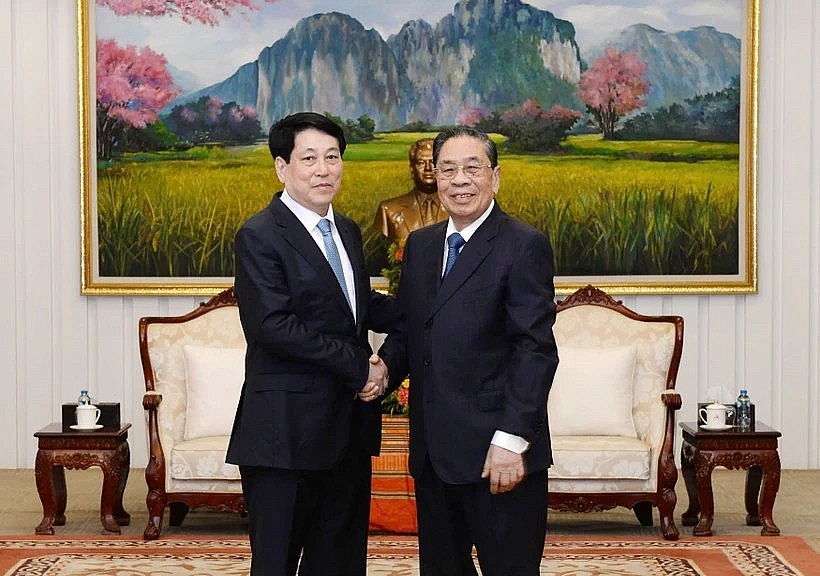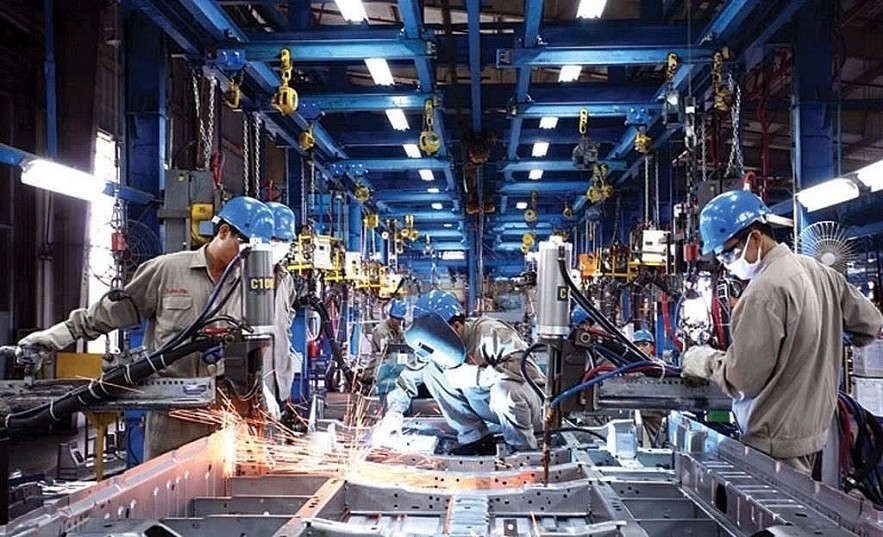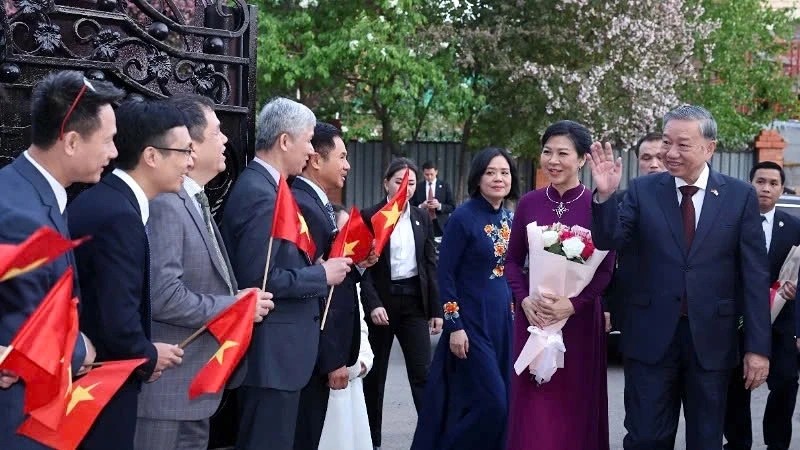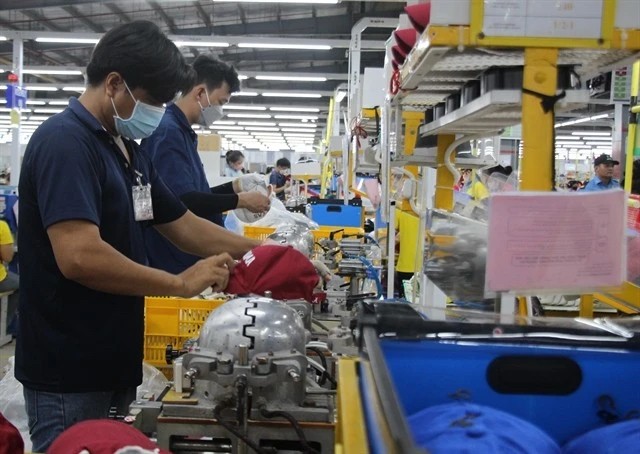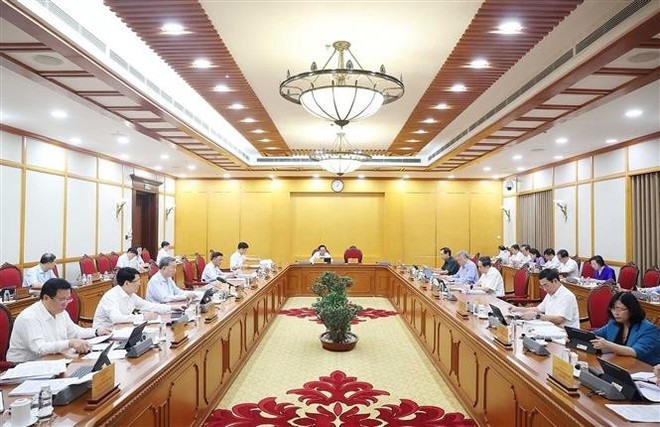Fulbright scholar highlights Vietnam’s miracle development journey following national reunification
As Vietnam is marking half a century since the liberation of the South and national reunification (April 30), Dr. Nguyen Hong Hai, a Fulbright scholar based in the College of Arts and Sciences at American University, has reflected on the country’s extraordinary transformation from a war-torn nation to a respected country in the international arena, a development journey that he described as “truly miraculous” in the face of formidable challenges.
In an interview with the Vietnam News Agency (VNA)'s resident correspondents in Washington D.C, Hai underscored the significance of the April 30 victory that marked the beginning of a peaceful and unified Vietnam. He said that generations of Vietnamese people must be grateful to their predecessors who laid down their lives for the country’s independence.
Following the victory, Vietnam continued facing numerous difficulties, from defending sovereignty in the northern and southwestern borders to protecting maritime sovereignty in the East Sea while enduring blockade and embargo. When Vietnam began its Doi moi (Renewal) process, the world underwent turbulence, with the collapse of the Soviet Union and Eastern European socialist bloc resulting in the cut-off of assistance for the country’s post-war recovery and reconstruction efforts.
Thus, while broadly spanning 50 years since reunification, Vietnam's development trajectory more narrowly dates from the Doi moi in 1986. Despite such difficulties, achieving the middle-income status within just four decades, and now aiming to become an upper-middle-income developing country and even a modern industrialized nation by 2045, represents what Hai called truly miraculous progress, reported VNA.
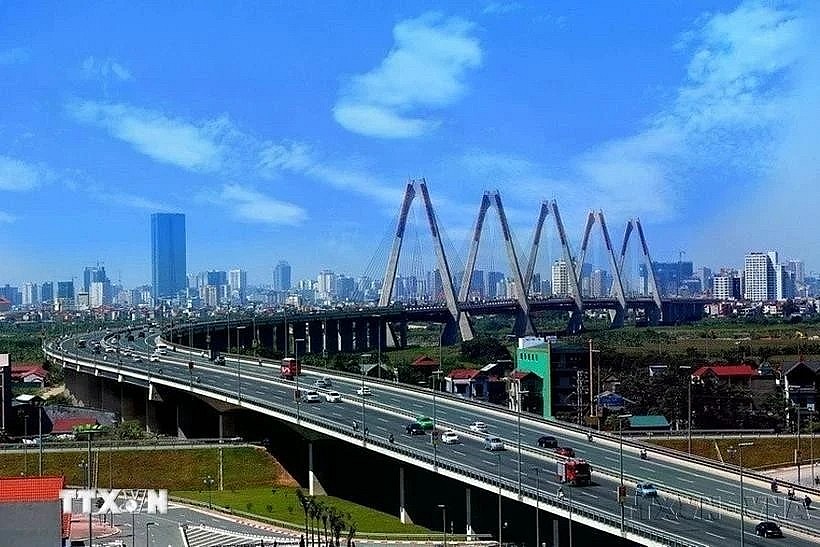 |
| Vietnam has made an extraordinary transformation from a war-torn nation to a respected country in the international arena. (Photo: VNA) |
He elaborated that within just over two decades after Doi moi, Vietnam lifted tens of millions of people out of poverty while steadily enhancing its international position regarding the areas of politics, diplomacy and economy, stressing the country’s development trajectory has been praised by the world as a model for many developing nations, particularly those facing similar challenges and having the starting points as Vietnam once did.
The scholar held that beyond policy directions and the leadership of the Communist Party of Vietnam that consistently prioritises national interests, the will and aspirations of the Vietnamese people have played a crucial role in bringing the country to its current level of development. No nation has a stronger desire for prosperity than the Vietnamese people.
He believed that the policies and appeals from Party and State leaders in propelling Vietnam into a new era of prosperous development align perfectly with the current context, meeting the aspirations of the entire nation.
Vietnam boasts numerous advantages to realize its aspiration, including social consensus, sound development policies, foundation built on nearly four decades of Doi moi – a launching pad to bring the economy to new heights, stable political and social system, and strategic and economic position.
However, Hai said, the strategic and geopolitical position makes Vietnam susceptible to both direct and indirect influence from competition among powers in the region. Besides, human resources and infrastructure relative to high-level development requirements, and global instability pose other challenges for the country.
He expressed his confidence that with sound diplomatic, political, and trade policies, Vietnam will certainly overcome these barriers. Maintaining a consistent foreign policy of diversification and multilateralization of external relations and being a reliable friend and partner of the international community, will help Vietnam concretise its aspiration of building a peaceful, unified, independent, and powerful nation that can stand shoulder to shoulder with world powers, fulfilling President Ho Chi Minh's wish.
Japan aims to strengthen ties with Vietnam in emerging sectors
In a press briefing ahead of Japanese Prime Minister Ishiba Shigeru's upcoming official visit to Vietnam, Ambassador Ito emphasized that strengthening relations with Vietnam is a cornerstone of Japan's foreign policy.
The visit is expected to reaffirm the shared commitment between the two countries to enhance cooperation in critical areas such as security and defense, economic growth, and addressing both regional and global challenges.
Ambassador Ito highlighted Japan's focus on advancing high-level diplomacy to promote its "Free and Open Indo-Pacific" strategy, which upholds a rules-based international order.
Praising Vietnam's rapid reforms under the leadership of General Secretary of the Communist Party of Vietnam Central Committee To Lam, the Ambassador noted that the ongoing transformation presents an opportunity for Japan to deepen its engagement. "This is a new era for Vietnam," Ito said. "Japan is eager to support this journey and contribute to peace and prosperity in the region and beyond," he added.
During the visit, the two nations are expected to discuss the progress of 15 renewable energy projects in Vietnam, with a total investment of up to US$20 billion. These initiatives are part of the Asia Zero Emission Community (AZEC), a Japan-led initiative aimed at promoting decarbonization across the region, VGP reported.
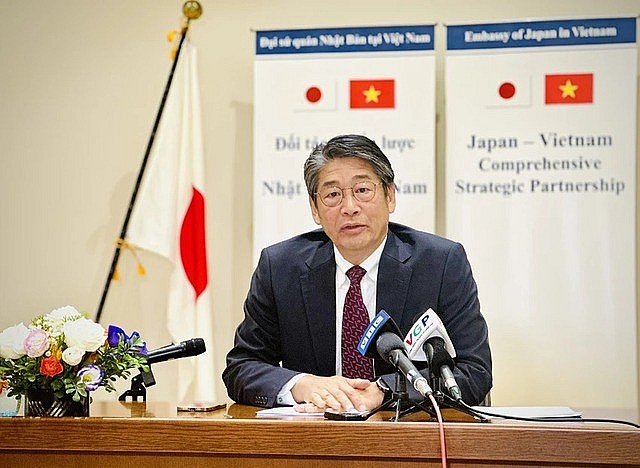 |
| Japanese Ambassador to Vietnam Ito Naoki. |
Additionally, Ambassador Ito revealed plans to expand cooperation in areas such as semiconductor training, defense technology, labor, tourism, and Japanese language education for Vietnamese citizens.
"The visit by Prime Minister Shigeru will lay the groundwork for in-depth discussions that will further unlock opportunities for collaboration between our two nations," said Ito, stressing the growing importance of bilateral cooperation amid a rapidly changing global landscape.
Earlier, the Vietnamese Ministry of Foreign Affairs reported that Japanese Prime Minister Ishiba Shigeru and his spouse will pay an official visit to Vietnam from April 27 to 29.
In November 2023, the two countries signed a Joint Statement on the Elevation of Relations to a Comprehensive Strategic Partnership for Peace and Prosperity in Asia and the World.
Sweden donates unfolded documentary Victory Vietnam on reunification day
The Swedish Embassy in Hanoi on April 25 handed over Victory Vietnam, an unfolded documentary about Swedish people’s celebration of the April 30, 1975 victory in Vietnam, to the Vietnam Film Institute under the Ministry of Culture, Sports and Tourism.
Victory Vietnam, directed by Bo Ohlen, portrays the jubilant atmosphere in Stockholm, Sweden, on April 30, 1975 as local people took to the street celebrating the end of the war in Vietnam. It highlights Swedish people singing songs of peace, waving banners in support of the National Liberation Front and expressing solidarity with the Vietnamese people.
Alongside vibrant footage of parades and heartfelt speeches, the documentary also documents political and material support from the international solidarity movement.
Speaking at the handover ceremony, Swedish Ambassador Johan Ndisi emphasized that the documentary reflects the profound friendship between Sweden and Vietnam, VOV reported.
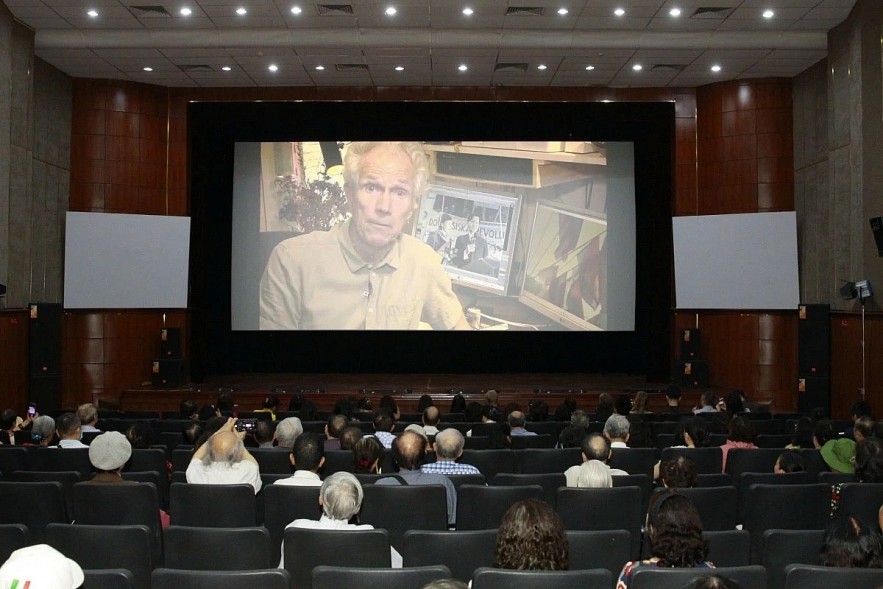 |
| Victory Vietnam, directed by Bo Ohlen, portrays the jubilant atmosphere in Stockholm, Sweden, on April 30, 1975 as local people took to the street celebrating the end of the war in Vietnam. |
“It reminds us that during those difficult times, people around the world, including in Sweden, stood up in support of Vietnam. Through this film, we not only witness the bravery and resilience of the Vietnamese people but also embrace universal values of peace and solidarity,” he said.
He said he hopes that Victory Vietnam will continue to inspire future generations to learn from the past and build a future based on mutual respect and cooperation.
Vietnamese Deputy Minister of Culture, Sports and Tourism Ta Quang Dong described Victory Vietnam as a valuable documentary as it authentically portrays the friendship and support of the Swedish people for Vietnam during a historic period.
“We are proud to preserve this film as part of our cultural heritage for future generations,” he stated.
Participating virtually in the ceremony, director Bo Ohlen shared, “When I made Victory Vietnam, I didn’t just want to capture a historic event. I wanted to express the powerful spirit of solidarity in Sweden at that time. This film is a heartfelt tribute to the people of Vietnam and your fight for independence, as well as to the international community’s support.”
“I’m very happy that the film has become part of Vietnam’s national archives. I hope it will continue to spread the message of friendship and international solidarity, especially in challenging times.”
The handover of the documentary coincides with the 50th anniversary of the liberation of the South and national reunification in Vietnam (April 30, 1975 – 2025).
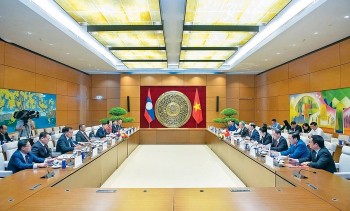 | Vietnam News Today (Apr. 22): Vietnam And Laos Promote Parliamentary Cooperation Vietnam News Today (Apr. 22): Vietnam and Laos promote parliamentary cooperation; Vietnam's reunification victory comes from collective strength; Vietnam emerges as preferred destination for Dubai ... |
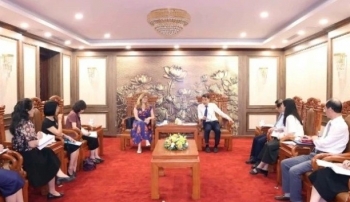 | Vietnam News Today (Apr. 23): Vietnam, UNICEF Chart Course to Enhance Child Protection Efforts Vietnam News Today (Apr. 23): Vietnamese President’s state visit to Laos extremely significant to bilateral ties; South America offers gateway for Vietnamese trade expansion; Vietnam, ... |

